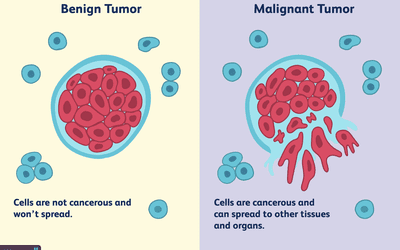
The lymph glands in the lymph nodes act as a defense mechanism. When normal or healthy cells, viruses, bacteria, and tumors pass through the glandular pathways, they are temporarily blocked at the nodes. When exposed to a disease or infection, the glands then accumulate waste, including dead and diseased cells, bacteria, and parasites.
When a cancer cell comes into contact with the lymph nodes or the lining of the blood vessels that transport blood to the lymph system, it may invade the node or produce symptoms of lymph node cancer. A tumor that has spread to other areas of the body can also invade these nodes.
If the cancer is at an advanced stage, the spread of the tumor into the lymph node is more of a concern. Once a tumor is detected, it cannot be treated unless the cancer is localized and has already spread to other parts of the body. Chemotherapy, radiotherapy, surgery, and lymph node dissection are common treatments for most cancers. Chemotherapy used alone is not always effective; it may only treat the symptoms or cause damage to healthy tissue or result in excessive side effects, such as hair loss and fatigue.
In addition to cancer, cancer of the lymph nodes often affects other organs in the body. For example, tumors in the bone marrow and lymph nodes can interfere with the production of antibodies needed to fight infection. A tumor in the spleen, pancreas, or liver can impair the function of these organs. When these organs are damaged by a tumor, other organs in the body can also be affected.
Lymph node cancer can occur in people of any age, but most often it occurs in men over forty. Because many men develop cancer later in life, some cases may be missed due to the aging process. The symptoms associated with this cancer are similar to those of breast and ovarian cancer. Many of the same symptoms exist in both men and women with breast cancer, so it is important to report symptoms immediately.
The symptoms of lymph node cancer depend on the stage of the tumor. Some of the most common symptoms include severe pain, unexplained fever, malaise, nausea, vomiting, night sweats, weight loss, night sweats, loss of appetite, night sweats, and loss of sex drive. if they happen. Additionally, some men report white, gray, or yellowish discharge from the penis. if they happen. Painless swelling of the lymph nodes and fever can occur if the cancer is at the base of the neck or groin and can spread down into the scrotum.
Treatment options can vary depending on the stage of the cancer. Chemotherapy, radiation therapy, and surgery are common procedures used to remove cancer or prevent it from spreading further. Chemotherapy uses drugs to kill or remove cancer cells; radiation kills and removes abnormal cells, while surgery removes tumors and removes dead skin.
Chemotherapy is used when lymph node cancer is found in the bone marrow. Radiation therapy involves using high-energy rays to kill cancer cells. A doctor will remove cancer cells from the patient's blood by injecting them into the cancerous nodes. The radiation is directed toward the tumors and destroys them. Radiation therapy for lymph node cancer has been shown to be extremely effective in treating this type of cancer. Chemotherapy is also highly successful in reducing the risks of the recurrence of the disease.
The use of chemotherapy and radiation therapy is highly effective for patients with lymph node cancer. These methods are effective in treating tumors in the bone marrow. Chemotherapy and radiation are often combined to form a more aggressive treatment for cancer patients. In most cases, a combination of chemo and radiation is the only way to treat cancer in the lymph nodes. Chemotherapy is usually given in combination with either surgery or a drug called paclitaxel.
Chemotherapy has been proven to be highly effective for many cancer patients, but many doctors choose to try alternative treatments before switching to chemotherapy and radiation. Many alternative doctors are now using herbs and dietary changes as part of their cancer treatment options.
Alternative medicine has been known to work for many patients. There are many herbs, vitamins, enzymes, and other substances that can help improve symptoms and increase the chances of successful treatment. If the tumor is in the bone marrow, doctors may recommend chemotherapy and radiation. In a few cases, the cancer may not respond well to chemo or radiation, so a more aggressive treatment may be prescribed.